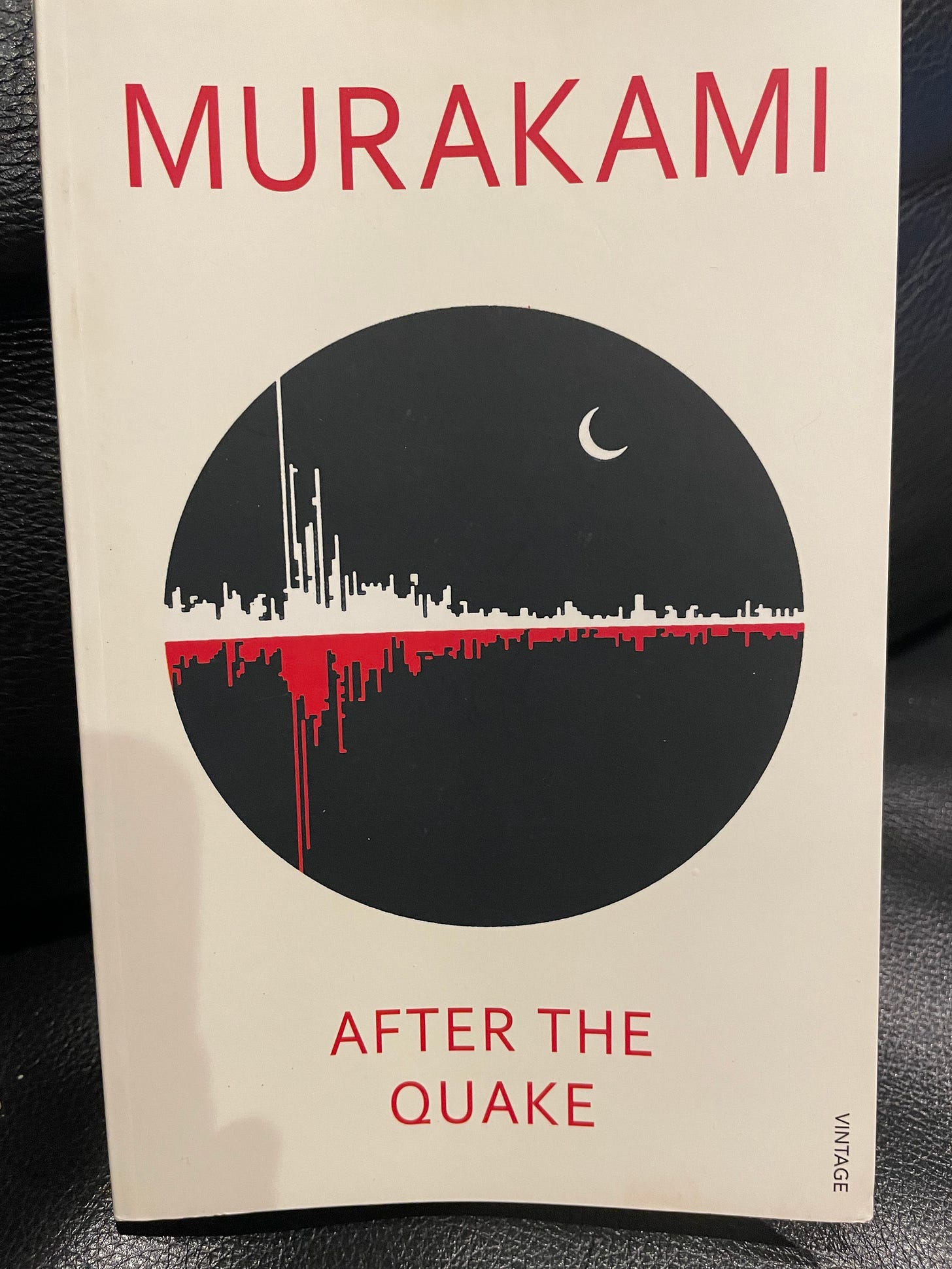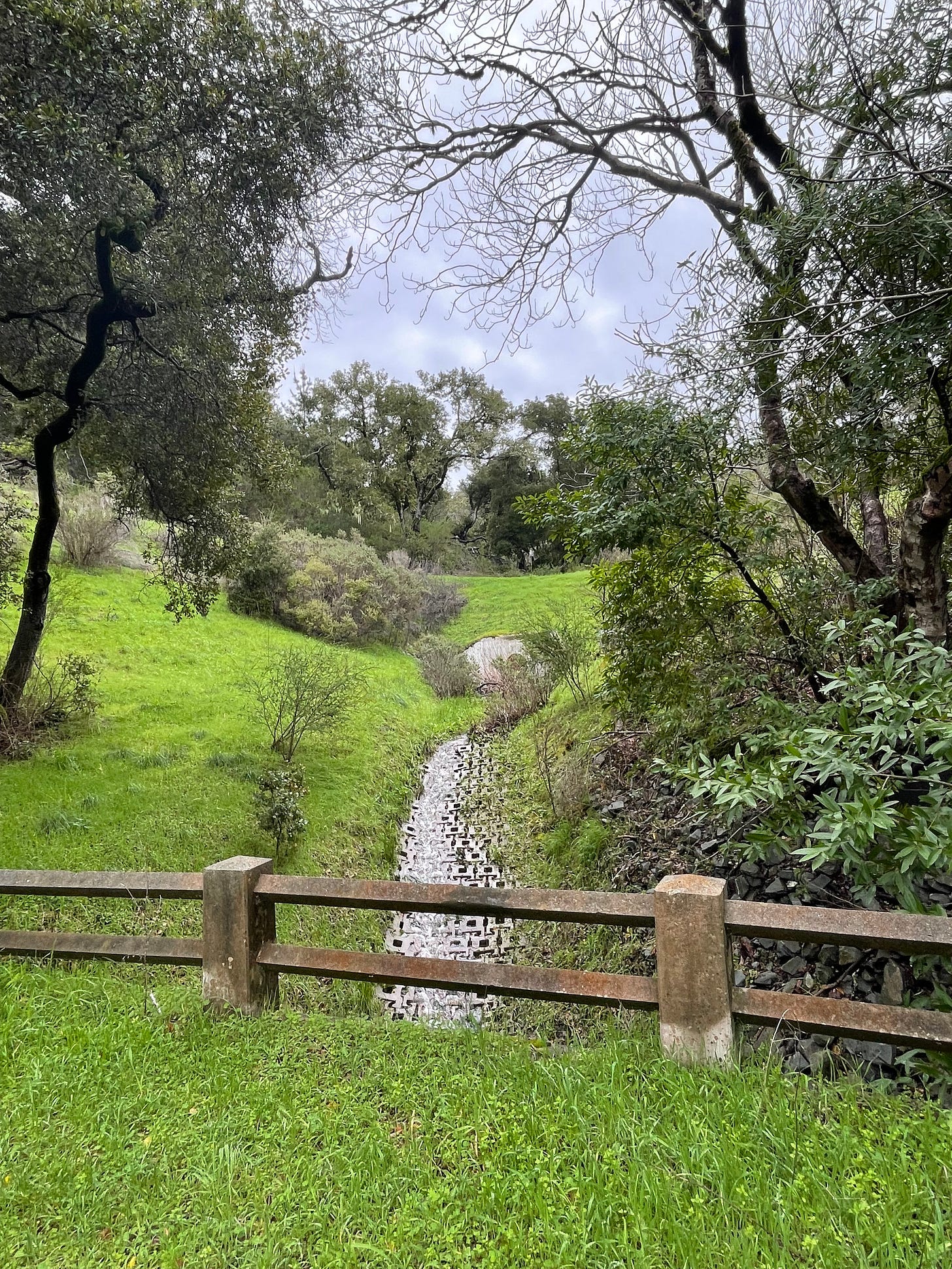THE BEAUTY OF MURAKAMI
Never have I enjoyed a short story collection so much. Reading Murakami is also a lesson in cultivating empathy and appreciating literature for its life lessons.

With this week I began my foray into the works of Haruki Murakami whose name the world’s great writers always utter with reverence and admiration. I’ve just realized, upon looking at his prodigious output, that I now have a gigantic Murakami shelf of books to explore.
“But not all his works are outstanding,” my son said when I told him about having read After The Quake. “Yes, some of Murakami’s works are simply phenomenal, but some are average, just like the outputs of most prolific writers.” My son’s bookshelf at our home has a few of Murakami’s novels and he pointed me to his shelf for my next Murakami reading experience.
In this brilliant collection translated from the Japanese by Jay Rubin, Murakami explores how people react to a life-altering world event. Set at the time of the catastrophic 1995 Kobe earthquake, the six stories in After the Quake are as haunting as they’re often outré. When my son and I talked about some of the stories in this collection, he told me he found them poignant, and particularly meaningful because he read them during Covid-19.
I totally understood what he meant. After The Quake is not just about loss and resurrection. What these works also reflect on is the nature of loss itself. A place may be physically rebuilt in a few years after destruction, but the loss of something precious and fragile shatters the plinth inside the human soul. In some sense every character we meet in Murakami’s stories finds his being in shards after the quake, and is seeking, in vain, sometimes, to put himself back together again.
I found out that Murakami grew up on the outskirts of Kobe and was personally affected by the earthquake of 1995. After his parents’ home was destroyed in the quake, he helped them move to Kyoto. In an essay for Granta, he reflects on the quake and the gas attack: “To me, the two events weren’t separate and discrete; unravelling one might help unravel the other. This was simultaneously a physical and a psychological issue. … And I had to create my own sort of corridor connecting the two.”
In the essay, Murakami writes about what it is to lose his connection with his home town. Having just returned from my own town in India this past week, the words struck a chord with me. On every return from Chennai, the sound of my late parents’ voices grow fainter still. The loss of a parent is another of those losses that rattles our bones. More and more, I feel, deep inside me, the loosening of my ties with what I once called my home. I feel a dull ache—which feels physical almost—when my thoughts drift towards this feeling. I share below an excerpt from the Granta essay in which Murakami seems to speak directly to my experience.
Strictly speaking, it’s not my home town any more. I feel a deep sense of loss at this fact, as if the axis of my memories is faintly, but audibly, creaking within me. It’s a physical sensation.
Maybe it’s exactly because of that that I wanted to take a walk there, alert and attentive to what I might discover. Perhaps I wanted to see for myself how this home town I’d lost all obvious connections with would appear to me now. How much of a shadow (or a shadow of a shadow) of myself I would discover there?
Each of the stories in After The Quake is presented as a pivotal moment in a life, a moment whose magnitude seem to match that of the earthquake itself. In the story titled UFO in Kushiro, the protagonist Komura watches his wife disintegrate after learning of the news of the earthquake in Kobe. She sits in a catatonic state in front of the television unable to leave her spot on the sofa and becomes an unrecognizable human to Komura even as he goes on about his life as if nothing has changed. One day she walks out of their home and the life they had created together because the earthquake seems to wake her up in some way, presenting itself as a reminder of her own mortality.
I am never coming back, she had written, then went on to explain, simply but clearly, why she no longer wanted to live with him.
The problem is that you never give me anything, she wrote. Or to put it more precisely, you have nothing inside you that you can give me. You are good and kind and handsome, but living with you is like living with a chunk of air.
With each story, the craftsmanship carries us farther along into the philosophical questions the author asks in each one. Every narrative is thus crafted to suspend us in the tenuous moment between living life in a vacuous state and embracing the inevitability of death.
The story called Thailand shook me up both because of its stillness and because it urges us to stop and ponder the end of our lives. The protagonist is a pathologist called Satsuki who is unable to let go of her hatred of a man who once used to live in Kobe. The feelings don’t go away but if Satsuki must move on, she has to free the stone in the pit of her stomach somehow, and her driver, a young man with extraordinary skills of perception, shows her the way, and reminds her of what lies ahead in her own life—her own mortality.
“You are a beautiful person, Doctor. Clear-headed. Strong. But you seem always to be dragging your heart along the ground. From now on, little by little, you must prepare to face death. If you devote all of your future energy to living, you will not be able to die well. You must begin to shift gears, a little at a time. Living and dying are, in a sense, of equal value.
Super-frog Saves Tokyo I found to be a masterpiece in craftsmanship and imagination. Thanks to a frog whose name is Mr. Frog, our collection officer, Katagiri, will be able to save Tokyo from an imminent earthquake. It’s a hilarious tale that I found myself reading out loud in parts because it’s made for this exercise. By the time frog melts into the floor, Katagiri has saved Tokyo and we’ve just been returned, in the rudest fashion, down to earth from what was once a magical state.
"I must apologize, Mr. Katagiri, for having barged in while you were out," Frog said. "I knew it would be a shock for you to find me here. I but had no choice. How about a cup of tea? I thought you would be coming home soon, so I boiled some water."
Katagiri still had his briefcase jammed under his arm. Somebody's playing a joke on me, he thought. Somebody's rigged himself up in this huge frog costume just to have fun with me. But he knew, as he watched Frog pour boiling water into the teapot, humming all the while, that these had to be the limbs and movements of a real frog. Frog set a cup of green tea in front of Katagiri and poured another one for himself.
Sipping his tea, Frog asked, "Calming down?"
After The Quake must be read, savored and shared.
Then, bending his neck slightly in her direction, he said to Satsuki, ‘Strange and mysterious things, though, aren’t they — earthquakes? We take it for granted that the earth beneath our feet is hard and immobile. We even talk about people being “down to earth” or having their feet firmly planted on the ground. But suddenly one day we see that it isn’t true. The earth, the boulders, that are supposed to be so solid, all of a sudden turn as mushy as liquid.





I’ve read two Murakami books: The Wind-Up Bird Chronicles, which I found to be quiet and haunting, and What I Talk About When I Talk About Running, which was every bit as inane and repetitive as the ridiculous title he gave his book. I guess we’re all allowed to succeed and fail at the same time, right?
I definitely should get myself a copy. Thanks for the great tip, Kalpana!